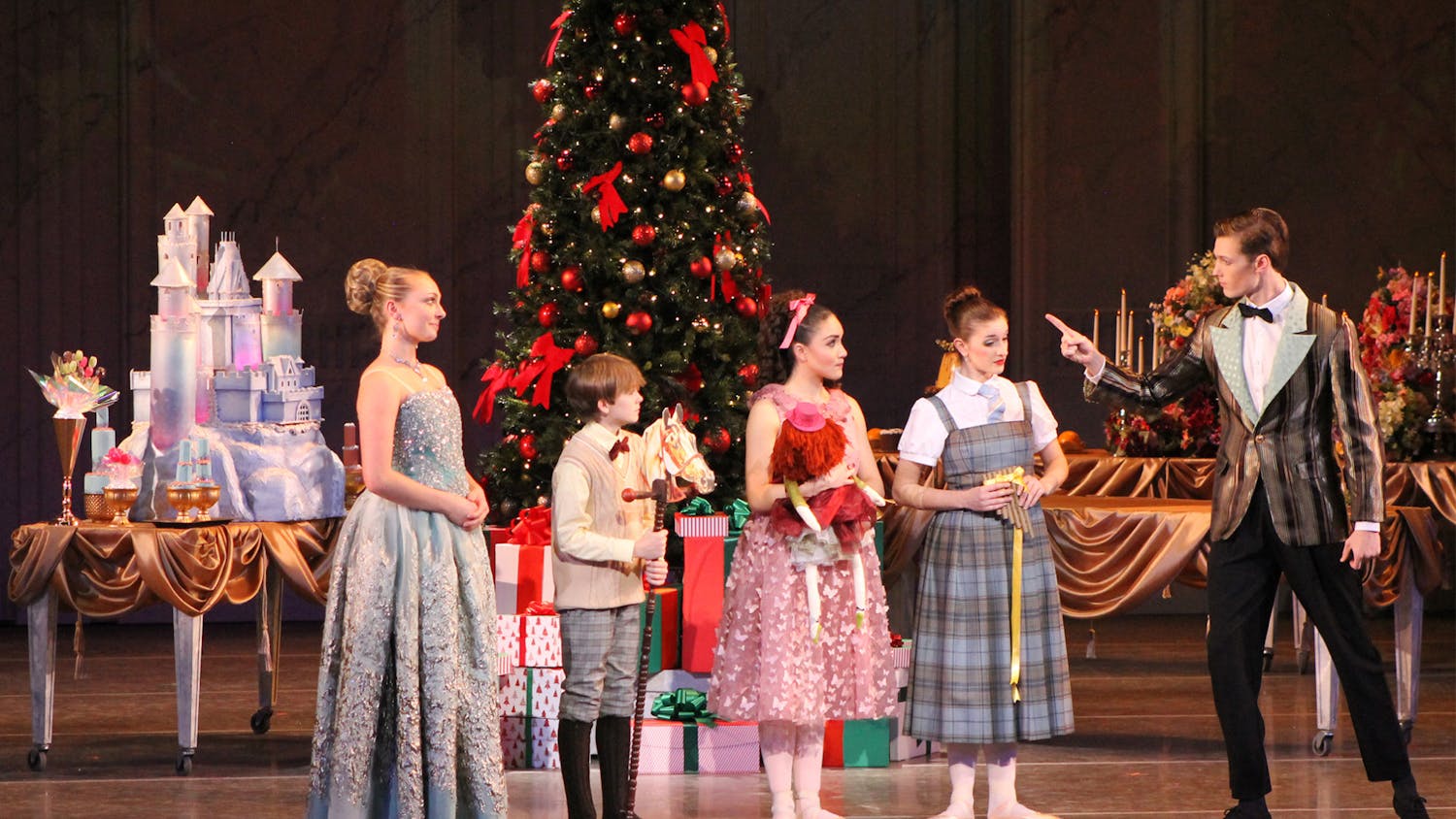Spoken word is more than a hobby for senior Chris Tabron — it’s a way of life.
Tabron began performing spoken word when he started forming a more personal relationship with God. Tabron said he uses spoken word to speak with God and to help send God’s message to others.
“I take life situations and connect them to the Bible,” Tabron said. “I like to give a message with it. Not only do I say the situation, but I give the solutions.”
Spoken word is a form of poetry intended to be performed instead of read.
“Spoken word is poetry, but it’s basically a song without music,” said IU alumnus Branden Scott. “Spoken word has more feeling. It’s like giving a speech. Poetry is reading from a book; it’s not emotional. Spoken word is a conversation meant to sway you.”
This art form has been making its way through campus and the Bloomington community for several years.
Along with Scott, Eric Love, director of the Office of Diversity Education, started Open Mic Nights at IU two-and-a-half years ago, and they have since been growing in popularity.
MATRIX, a not-for-profit organization, which provides public forums for literary and visual artists in Bloomington, has poetry slams about once a month. The next poetry slam will be at 7 p.m. today at Rachael’s Café.
The organization which began hosting poetry slams in 2001, is the oldest outlet in Indiana for these spoken-word competitions, said Tony Brewer, “slam master” and senior editor for the organization.
Poetry slams are competitions specifically made for spoken word. The rules might differ, Brewer said, but typically there are three rounds in which each performer has three minutes to perform their piece. Judges provide scores, and those with the lowest score are eliminated during each round. The person who ends up with the highest score wins.
Some poetry slams are themed for a specific style, such as haikus, sonnets or specific poets. Those who do the best in the competition tend to be the performers who get the audience involved.
“The ones that score the best get the crowd excited either because they have interesting content or a unique take,” Brewer said. “Or their performance is more dramatic. ... It’s more about the
audience than the poet.”
Delivery is a key element of spoken word, Brewer said. Performers should have their emotions connect to the audience members.
To practice, junior Shawn Major-Winston said he goes on YouTube and watches videos of poetry slam performances. He impersonates the performers and observes how they “spit out” their emotion and drama. From there, Major-Winston said he works to deliver his own work, practicing how to locate which words to emphasize and which ones to rush over.
But when performing your own work, Major-Winston said, you should not copy others.
“It’s your work, your story, your interpretation of history so write and deliver like its meant to be heard,” Major-Winston said.
For most, writing and performing spoken word is a personal experience.
Major-Winston became invested in spoken word after he took African-American and African Diaspora Studies courses. He was troubled by the readings, learning about the injustices African-Americans have faced throughout history.
Inspired by African-American poets such as Langston Hughes and Maya Angelou, Major-Winston said he holds nothing back.
“Through learning history, it let my emotions spill out,” Major-Winston said.
Sophomore Toyia Maxey said she utilizes spoken word to bring attention to controversial issues that are typically overlooked and that she hopes her work catalyzes change.
Maxey performed her spoken-word poem, titled “Misinformed,” at the most recent IU Miss Black and Gold pageant last December. “Misinformed” is about the inequalities women face, internal struggles of the African-American community and what it’s like to be a Muslim in America.
For Maxey, this piece was personal because she is female, African-American and a Muslim. At the pageant, the audience cheered during her performance, which she said gave her the confidence she needed to continue spoken word.
Although spoken word can be performed by anyone, males reign as the most prominent performers, Maxey said.
“Maybe it’s because spoken word is so raw,” Maxey said. “Women are not looked at to be as raw. Poetry is soft, and this is why it is equated to women. This is the issue — people aren’t ready to hear from women.”
Scott said spoken word requires opening up to strangers.
“When performing spoken word, you are sharing a story with the public that is not meant to be shared with other people,” he said.
Students express from the heart in spoken word poetry
Get stories like this in your inbox
Subscribe





